Your Guide To Emergency Preparedness For Apartment Dwellers In Indianapolis
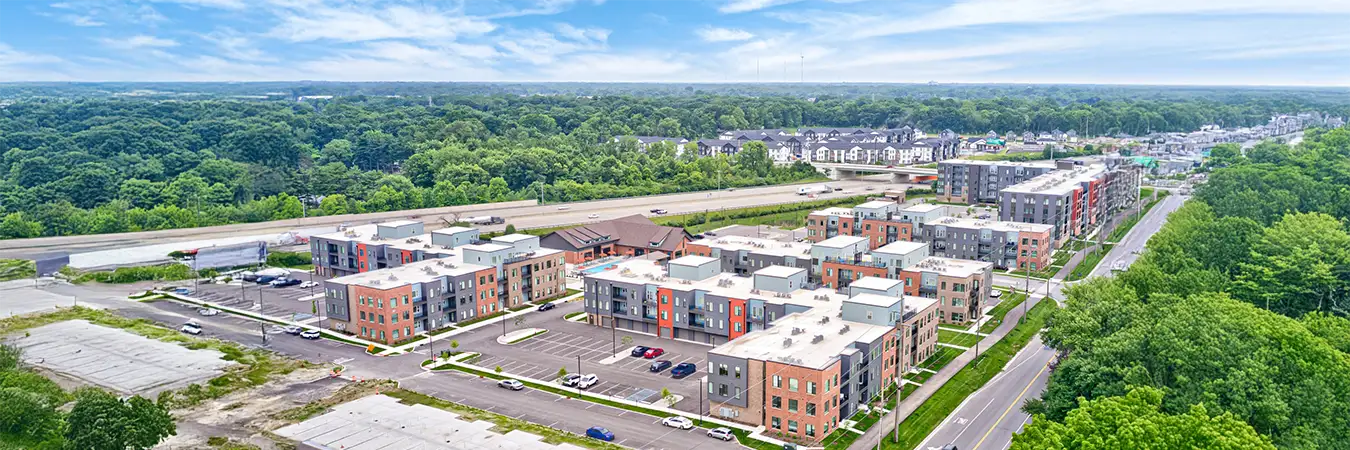
Residing in an apartment, you follow basic safety measures each day, like securing your door when you leave. But you probably don’t give as much consideration to more significant risks like natural disasters. Fires, tornadoes, and more can happen with hardly any warning and cause a chaotic situation. While apartment buildings are built to endure natural elements, you still need to take precautions. Follow this guide to learn more about emergency preparedness for apartment dwellers in Indianapolis and feel more secure where you reside.
Be Prepared For Anything With An Apartment Emergency Kit
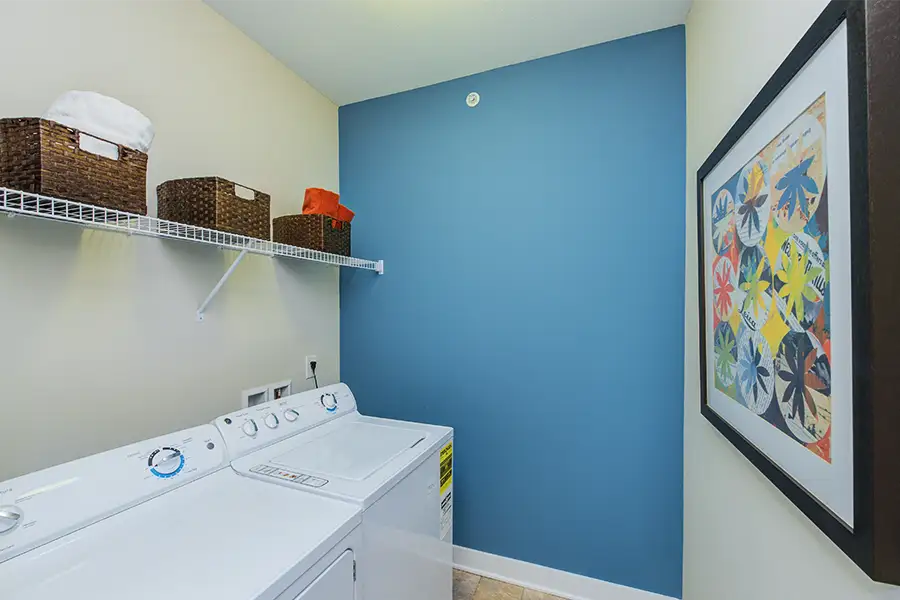
If you need to shelter where you are or evacuate swiftly, having a well-stocked apartment emergency kit in your Indianapolis abode will make any urgent event easier to manage. Determine an area in your apartment to keep a go-bag and other emergency supplies like these:
- Flashlights
- Extra batteries
- Weather radio
- Vital medications and first aid kit
- Power bank or wireless phone charger
- Three days of water and shelf-stable food
- Sturdy shoes and extra clothes
- Child necessities
- Spare blankets
- Copies of essential documents in a sealed, waterproof bag
How To Be Ready For An Apartment Fire In Indianapolis
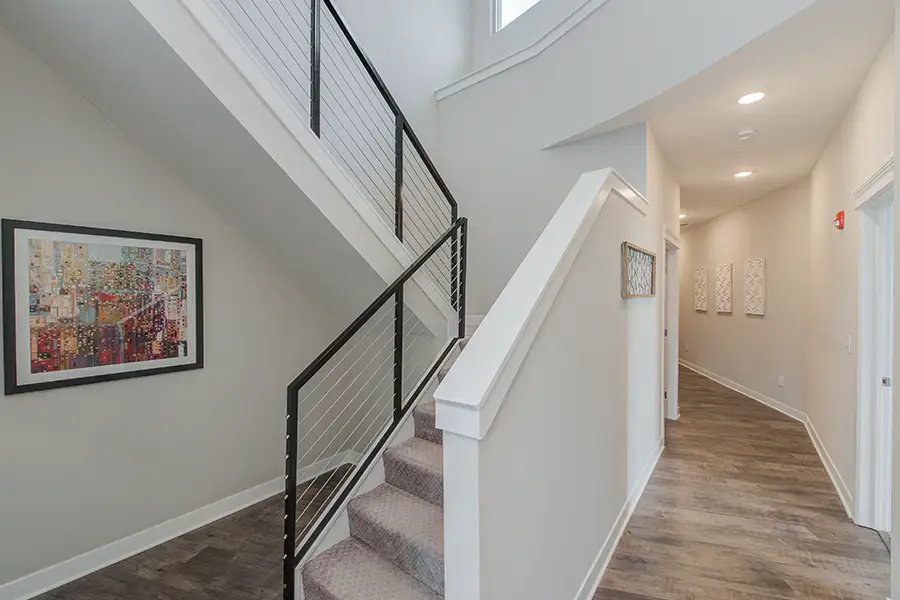
With so many Residents in the same structure, apartment fires can be especially destructive. Being ready increases your odds of coming out unscathed.
Your property maintenance professionals should ensure that fire extinguishers and smoke detectors work in all units. Do not deactivate these. Adhere to community fire guidelines and avoid using open flames indoors. Don’t store items in hallways that might injure people during an evacuation. Have an evacuation plan for everybody in your apartment.
If a less intense fire starts in your apartment, adhere to standard guidelines for taking care of it with a fire extinguisher or water. Utilize baking soda, the extinguisher, or salt on grease fires.
If a fire gets big, evacuate immediately. Use the stairs and the nearest exit and distance yourself from the structure before you call 911. Don’t prop open doors; they can let in drafts that accelerate the fire. Do not go back inside to collect things or others.
How To Shelter In Your Apartment During A Dangerous Storm
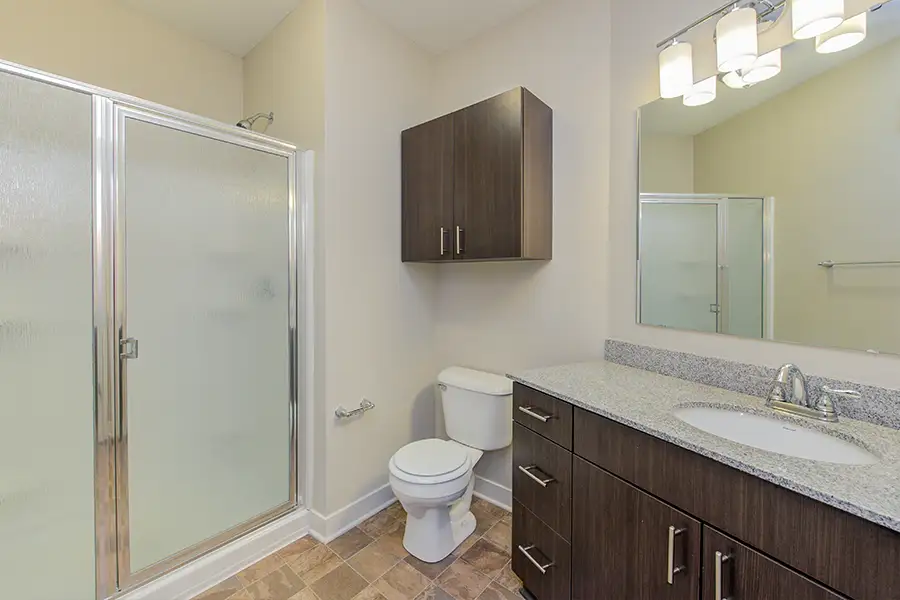
The Midwest often gets dozens of tornadoes each year. Intense thunderstorms and powerful winds can also be dangerous. You likely learned at a young age to seek shelter in a cellar, but what do you do during a tornado in an apartment in Indianapolis?
The safest spots for apartment ocupants are
- The sub-level of an underground parking garage
- The ground floor of your building, and far from windows
- A neighbor’s first-floor apartment
- Interior hallways or stairwells without windows
- A closet or interior room of your apartment
- Underneath a sturdy table
- Inside the bathtub with a thick blanket to help protect from debris
Put a bicycle helmet, hard hat, or pillow on your head. Never stand by windows or beside hefty objects that could fall on top of you.
If your building sustains serious damage from heavy storms, evacuate as safely as possible. As you depart, be cautious of damaged power lines and gas leaks. Walk or drive to a safe place.
Staying Safe In Your Apartment During Winter Weather
Winter weather can rapidly turn a winter wonderland into a dangerous situation. Pay attention to weather forecasts daily and prepare for inclement weather before it hits. Don’t get stressed out, but gather necessities before a severe weather hits and have a strategy for staying warm in your apartment. Let water drip from your faucets to minimize the risk of frozen pipes.
Contact your emergency maintenance number immediately if your furnace dies or you have a burst pipe during cold weather. If you lose heat and power during a winter storm, follow these guidelines:
- Stay inside
- Wear layers of warm clothes and cover yourself in blankets
- Keep close watch of vulnerable individuals for hypothermia or frostbite
Avoid using fuel-powered appliances inside your apartment to keep yourself warm. They give off toxic gases that collect inside.
Living With A Power Outage At Your Apartment In Indianapolis
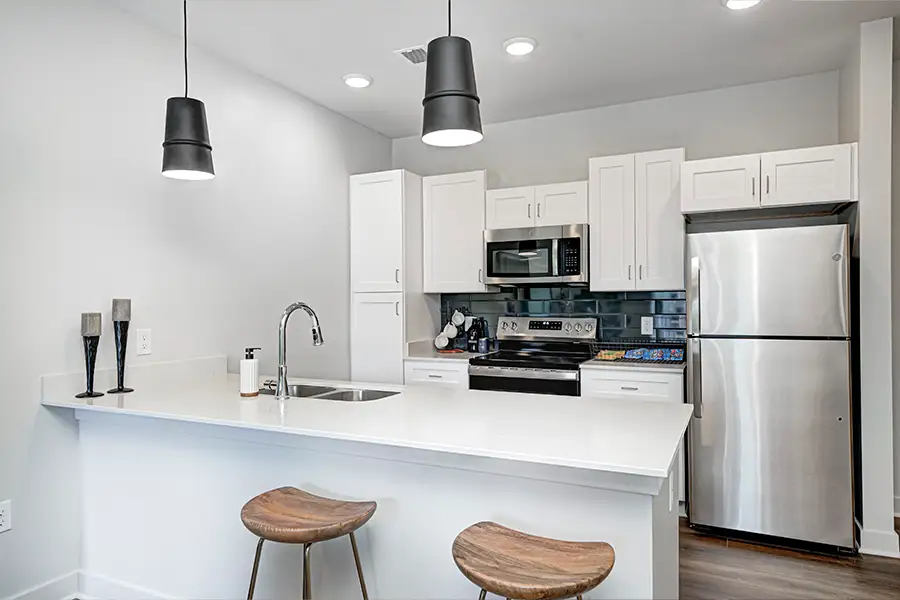
We all face a power outage occasionally. In most cases, your local utility company will bring back power within two or three hours. Even so, a significant enough natural disaster might leave you without electricity for days or longer.
Your emergency kit can help you survive a power outage. But, conditions can get dangerous if you lack heat or air conditioning during severe temperatures. In this scenario, vulnerable individuals should relocate to a building with power.
Follow These Cooking And Food Safety Tips
Be wary of food that has gone bad. When you lose power, don’t open your refrigerator and freezer. As a general rule, food stays safe in a shut refrigerator for 4 hours and a freezer for up to 2 days after losing power. Use a cooler and ice if possible to preserve essential food throughout the first 24 hours of a blackout.
Utilize these suggestions if you depart during a power outage at your apartment in Indianapolis:
- Shut off any appliances that might have been on
- Encourage neighbors to let you know when power comes back
- Be alert to downed utility lines as you leave and notify the power company to report them
What To Do If Your Apartment Floods In Indianapolis
If you live near a flood zone or river, you may experience a flood after severe storms or if a dam is breached. Watch the news for updates and take note of issued warnings. If you have to evacuate, take these steps:
- Unplug all dry electrical appliances.
- Swiftly pack the basics or retrieve your emergency go-bag.
- Move essentials and precious items to elevated spots.
- Move to a safer location out of the flood zone.
- Never drive over submerged streets or wade into floodwaters.
In a dire situation during rapid flooding, do everything necessary to make your way to the uppermost floor of your building or the rooftop.
How To Respond To An Earthquake In Your Apartment

Even though the Midwest isn’t a hotspot for earthquakes, you might feel a bit of rattling on occasion! It’s a good idea to learn what to do if you feel an earthquake in your apartment in Indianapolis, just to be safe.
To start, place heavy or large belongings on the lowest shelves. Don’t hang anything substantial over your bed or seating. Fasten tall pieces like display cabinets to walls.
As soon as you notice the beginning rattles of an earthquake, go to your knees and crawl to a door frame, under a sturdy piece of furniture, or next to an interior wall. Avoid windows, light fixtures, exterior doors, or anything at risk of toppling over. Protect your head with one hand and clutch onto something stable with the other. If you can grab a pillow, put it on top of your head.
When you feel the trembling has ended, examine yourself and other occupants for injuries. Pay attention to local news outlets for information and prepare yourself for aftershocks. Inspect your nearby surroundings for risks like gas leaks, fires, or damaged electrical lines. Put out fires and disable the gas and power if you you can do so without risk. If you see building damage, evacuate as cautiously and quickly as possible.
Other Emergency Preparedness Tips For Apartment Residents In Indianapolis
Disaster can occur at any time. A few more recommendations can help you manage the unexpected and stay safe:
- Rely on neighbors. Get acquainted with those in your building so you have an idea who might be around if a crisis unfolds. Chat about what supplies, protected shelter locations, or skills you can use in urgent events.
- Make sure you carry renters’ insurance.
- Avoid using an elevator to evacuate during an emergency.
- Arrange a safe spot to shelter pets if you must evacuate to an emergency relief center.
- If a disaster renders your building unsafe, wait for communication from property staff before coming back.
- Access a battery-powered radio or mobile phone to discover local resources if you need to evacuate.
Your Safety And Comfort Are A Priority At Block 20
We have no control over the weather, but we can offer you an exceptional apartment experience in Indianapolis! Block 20 is known for our terrific location, popular amenities, roomy floor plans, and friendly employees. Schedule a tour today and speak with one of our leasing agents about making Block 20 your next home.
